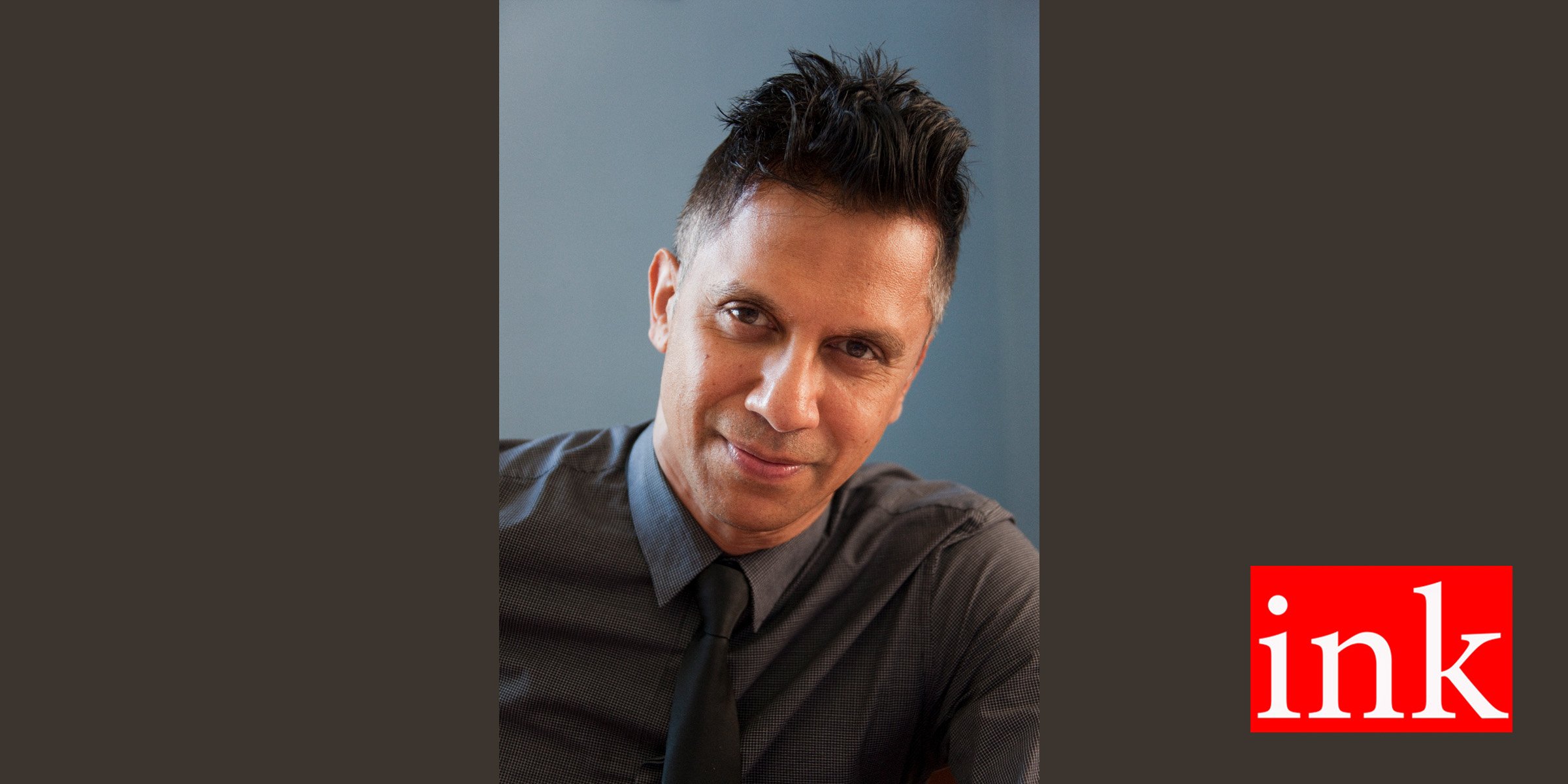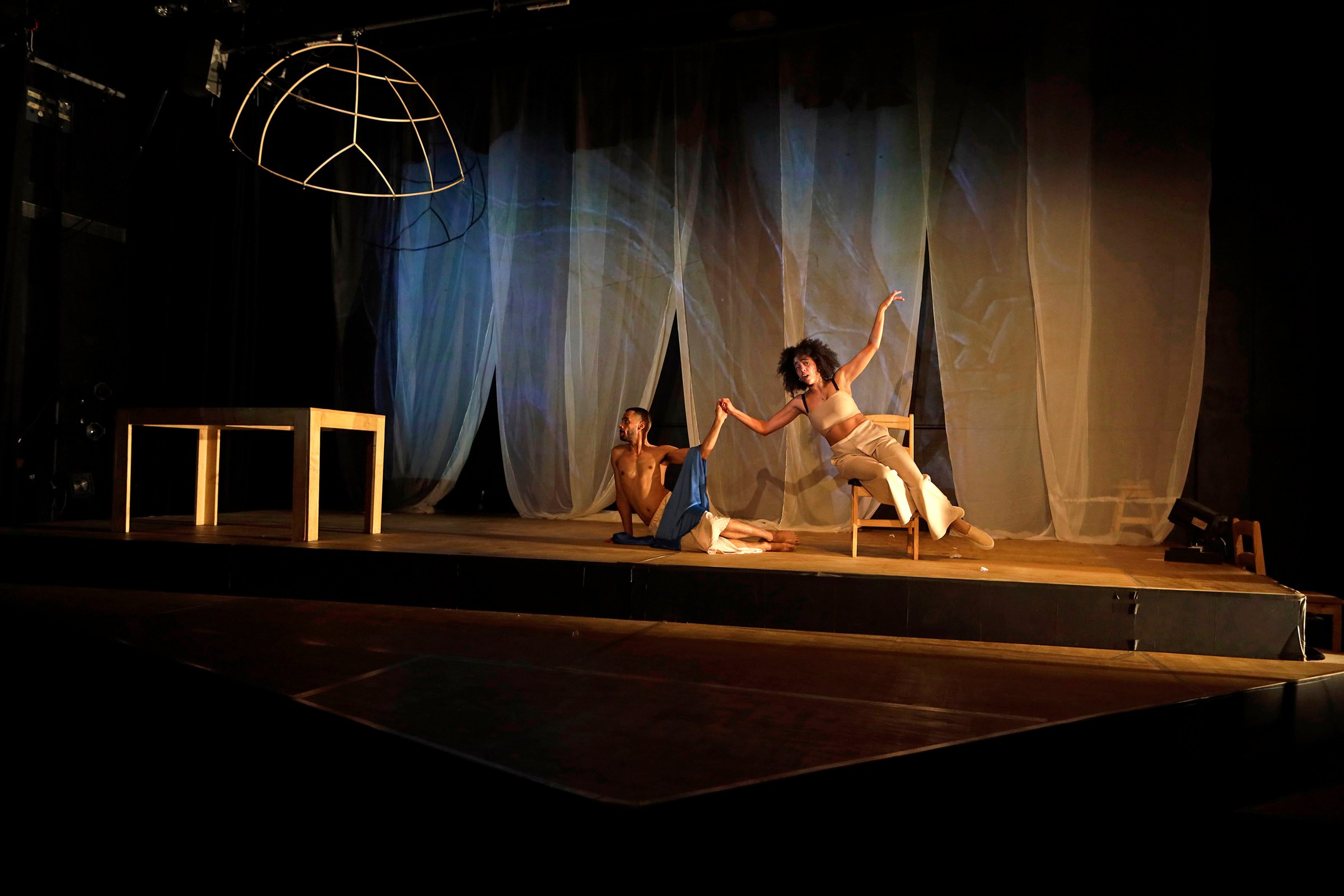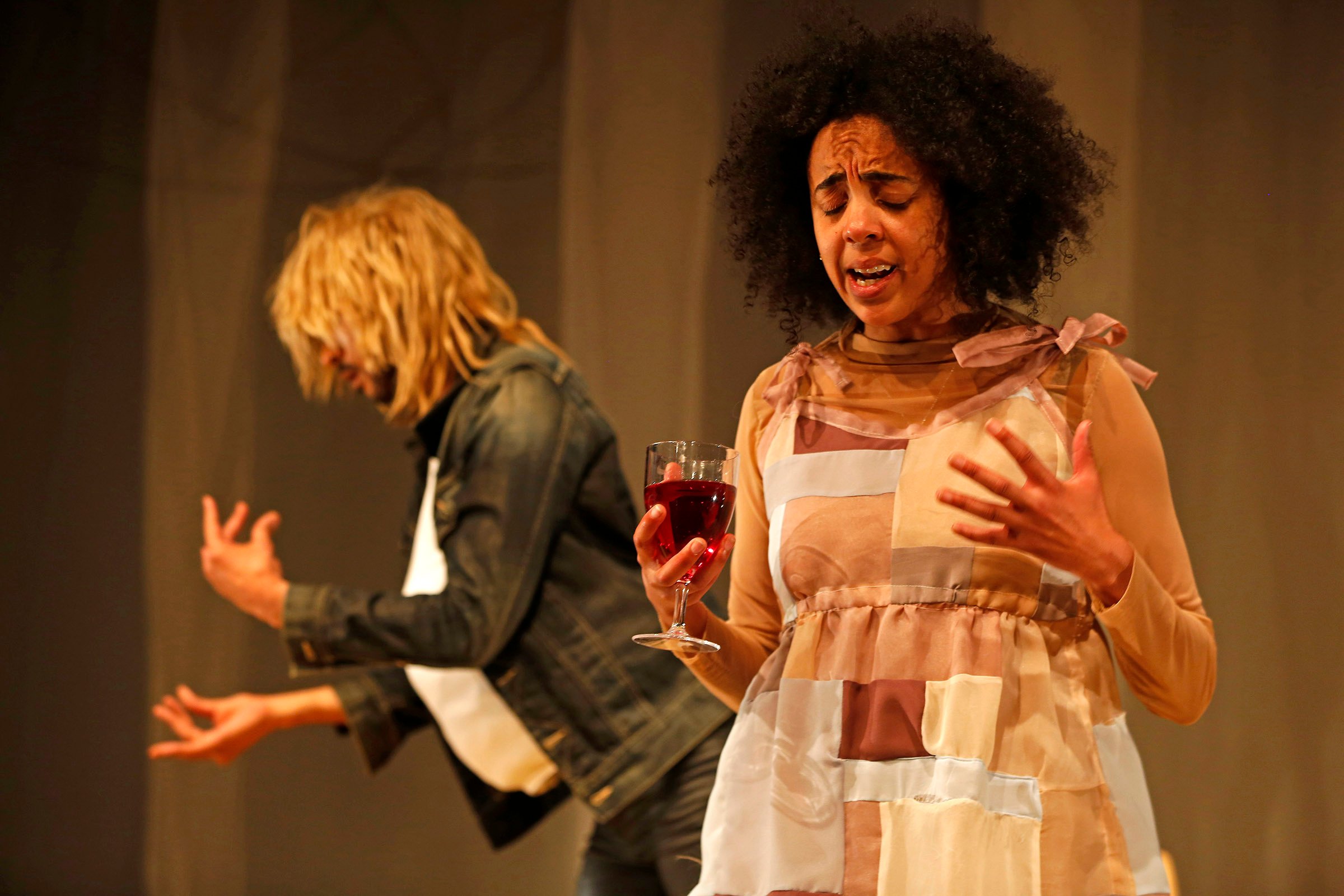
Production: Bridling
By: Diane de Beer
Photos: Jeremeo Le Cordeur
Bridling is the third collaboration between author Nadia Davids and director Jay Pather. Nadia used the story “What Remains” and worked it into a play.
“I was really taken by the poetic, lyrical yet sharp and at times brittle writing. It also had a rhythm that immediately made me think of an accompanying dancer, in this instance Shaun Oelf, to share the stage with actor Buhle Ngaba.
“The ominous sense of something strong, violent and yet transformative was so present in the writing and the dance helped create a physicality to evoke that and hold the text,” explains Jay.
With Bridling, even though it is ostensibly about a director, what appealed to Jay was that it is about the whole theatrical enterprise and the playing out of trauma. “In South African theatre we have often debated whether that was akin to a kind of ‘poverty porn’ in photography, restaging trauma as an act of supposed social conscience and yet a kind of fetishizing of pain that occurs.”
But he believed that Davids’ play is not annoyingly judgmental about this. “The theatrical contract can go either way – superfluous trauma display or a portal to understand the human condition, desire and fears. Playing on that edge is what fascinates me in this work,” he says.

Searching for a truth in the performance was important to him. “Sometimes it feels like everything, gestural, vocal, visual is a cliché – which Bridling also plays with – and only some serious deep diving can come up with shifts that place the audience encounter at the centre and not just inventiveness or clever staging.”
He approached the text as self-reflexive because he found that is exactly what it was – theatre talking to itself.
“It’s a series of stream-of-consciousness thoughts that is already built in. Trying to ‘tell the story’ was my main objective. I searched for clarity and distilling. But I am attracted to the layering that may come from movement and visual design, so there’s that. This story is disturbing and compelling and it was hard to do any more than that.”
His approach was to focus and stay as close to the text as possible. “Because there is self-consciousness as one might get with any ‘play within a play’ scenario,” he notes. And that’s in the writing. “Where movement or visual imagery was involved, we stayed too close to what the text asked for.”
Looking at theatre in the future, he hopes it considers human rights more. “This may sound very eighties but it’s only because we have not completed that work. So as inventive, as outrageous or provocative a work is, if it is not in some way touching sides with our untransformed, desperately unequal society, then whatever the invention, we would have missed important cues in how we can help to transform a flailing society.”
Yet he remains excited about theatre. “I am more and more thrilled about internal landscape, about choices, questions, and needs. I love it when the actor’s vocal quality and body shifts very slightly because a choice is being considered and made.

“That, more than anything loud and fancy! Those telling moments of why we are the way we are, why we dither when confronted with an ethical question, why we look the other way, why we continue to be silent in the face of inequality – these choices bring us closer to our humanity, and hopefully track a way to get out of it.”
As for Bridling he encourages everyone to see it. For a host of reasons: amongst them, two gifted performers and a wonderful set, costume, and sound design. “But mainly that it raises powerful questions about the place of art and the representation of trauma and what we expect from actors, what we drive them to in order to achieve this.
“It is also entertaining in a way that keeps one compelled to watch a story unfold and an actor playing an actor unravel under the weight of what they are expected to deliver to a public.
“For a festival it is kind of perfect and the points may not be agreed on that Nadia Davids makes, but I think the need for this kind of work to reflect on our motives for doing (and watching) theatre, and to find the tiniest discomfort in making theatre in the face of all that our society encounters. And that kind of discomfort – that may precipitate honest encounters with our audiences, that is always good.”
*
Bridling
18 OCT 20:30 | 19 OCT 15:30
HMS Bloemhof School Hall

